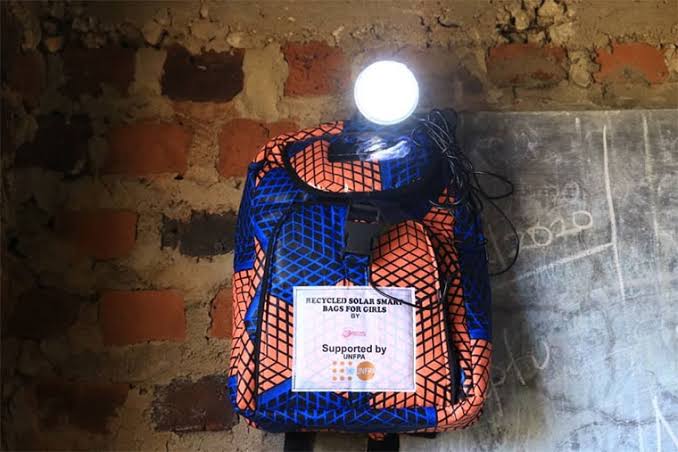In Uganda and many parts of Africa, the barriers to education for young girls go far beyond school fees. Access to menstrual hygiene products and reliable lighting for evening studies remains a significant challenge, especially in marginalised communities. Recognising these hurdles, Jamila Mayanja, an entrepreneur and educator, invented a practical solution called the Solar Smart Bag.
As the founder of Smart Girls Uganda, an organisation dedicated to empowering women and girls with self-reliance tools, Jamila created the Solar Smart Bag to address these challenges directly. This bag, made from recycled materials, combines functionality with environmental sustainability.
It features reusable sanitary pads, a solar panel for charging a lamp, and compartments for school supplies. By simultaneously addressing menstrual hygiene and energy access, this innovative tool enables girls to attend school confidently and study effectively at night.
Mayanja’s inspiration came from her own experiences as a young student. She vividly remembers struggling to manage her menstrual health and witnessing peers drop out of school due to stigma and lack of resources. These memories became the foundation for her commitment to finding a solution that could change the trajectory of countless girls.
Since its launch, the Solar Smart Bag has made measurable strides in improving lives. Over 30,000 bags have been distributed across Uganda and neighbouring countries, directly reducing school absenteeism caused by menstruation. Girls who previously missed several days of school each month now attend consistently, with many achieving academic milestones and securing better futures. Some beneficiaries, trained through Smart Girls Uganda’s vocational programs, have ventured into solar technology and entrepreneurship careers, creating a cycle of empowerment.
The journey to realise this vision, however, was fraught with challenges. Training young women in technical skills, often with no formal education background, required significant time and resources. Iterations of the bag design involved extensive user feedback to ensure it met the practical needs of the girls. Despite these obstacles, Mayanja’s perseverance and ability to engage stakeholders like the United Nations Population Fund (UNFPA) propelled the initiative forward.
Jamila Mayanja has set an ambitious goal to provide one million Solar Smart Bags by 2030. To sustain production, her organisation reinvests 30% of the profits from sales into free distributions. This model helps the project grow while empowering communities with locally driven solutions.
The Solar Smart Bag’s impact is far-reaching. It addresses immediate needs and fosters broader change by improving girls’ educational outcomes and economic opportunities. With reliable tools, they are breaking free from cycles of poverty and contributing meaningfully to their communities.
As Jamila Mayanja reflects on her work, she envisions a future where necessities hold back no girl.
“When you empower a girl, you transform a family, and that change ripples across society,” she notes.




